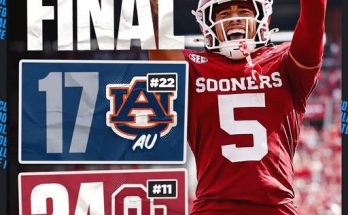The recent news that Zach Evans, a promising running back who had just landed with the New York Jets, has decided to retire from the NFL at the tender age of 24 years old, has sent ripples through the professional football world. This unexpected announcement, coming just ahead of the 2025 training camp, marks a swift and somewhat startling end to a career that, for many, seemed poised on the brink of greater things. The former Ole Miss standout, originally a sixth-round pick by the Los Angeles Rams in the 2023 NFL Draft, now steps away from a sport that demands unwavering dedication and often, a hefty physical and mental toll. His decision is particularly striking given his age and the relatively short time he spent in the league, prompting discussions about the multifaceted pressures and realities that emerging talents face in the cutthroat environment of professional football.
Zach Evans’ journey to the NFL was marked by considerable hype and expectation. Coming out of high school, he was a highly touted five-star recruit, a prodigious talent that many saw as a future star in college football. He initially committed to TCU, where he displayed flashes of that immense potential. His freshman year at TCU saw him average an impressive 7.7 yards per carry, showcasing the explosive playmaking ability that had made him so sought after. A sophomore season at TCU was unfortunately cut short by a turf toe injury, yet he still managed to put up solid numbers, further hinting at what he could achieve when fully healthy. The narrative surrounding Evans then took another turn with his transfer to Ole Miss for his final college season in 2022. Under the guidance of Lane Kiffin, Evans truly blossomed, rushing for 936 yards and nine touchdowns, averaging 6.5 yards per carry, a figure that led the SEC. This collegiate performance, characterized by both power and elusiveness, solidified his position as a legitimate NFL prospect, even as he shared the backfield with the emerging talent of Quinshon Judkins. He declared for the 2023 NFL Draft, optimistic about his professional future.
The NFL Draft is a moment of immense hope and anxiety for college athletes, and for Zach Evans, it culminated in his selection by the Los Angeles Rams in the sixth round, 215th overall. While not a first-round pick, a sixth-round selection still represents an opportunity, a chance to prove oneself at the highest level. For a running back, the path to playing time can be challenging, often requiring contributions on special teams and a patient wait for opportunities in the backfield. During his rookie season with the Rams, Evans appeared in 10 games, primarily on special teams, and saw limited offensive snaps, logging just nine carries for a modest 19 yards. It was a baptism by fire into the speed and physicality of the NFL, a stark contrast to the dominant role he often played in college. The Rams ultimately decided to move on from him, releasing him prior to the 2024 season.
The short stint with the Rams was a clear indicator of the immediate struggles many draft picks face in carving out a niche in the NFL. The transition from college star to professional backup or special teams contributor is a common one, and it requires a significant shift in mindset and approach. The game speeds up dramatically, the competition level intensifies, and every snap is fiercely contested. For a running back, the windows of opportunity are smaller, the hits are harder, and the margin for error is virtually non-existent. Evans, like many young players, found himself navigating this challenging landscape.
Following his release from the Rams, Zach Evans found a new opportunity with the New York Jets in late 2024, initially joining their practice squad. This move represented a potential fresh start, a chance to impress a new coaching staff and prove his worth. He signed a reserve/future contract with the Jets in January 2025, which signaled a commitment from the team and a pathway to competing for a roster spot in the upcoming season. The Jets, with their aspirations and a need for depth at the running back position, seemed like a plausible fit for Evans to potentially revitalize his professional career. The running back room in New York, while featuring established talents, also offered a glimmer of hope for a player looking to carve out a role.
However, just as the 2025 training camp was about to commence, the Jets announced that they had placed Zach Evans on the reserve/retired list. This designation officially signifies a player’s retirement from the league, with the team retaining his rights should he ever decide to return. The timing was abrupt, catching many by surprise. At 24 years old, Evans is in what would typically be considered the early stages of his athletic prime. His decision to step away at such a young age, especially after securing a new contract and seemingly having a fresh chance, naturally sparks speculation about the underlying reasons.
While the exact reasons for his retirement remain officially undisclosed by Evans or the Jets organization, the realities of an NFL career often shed light on such decisions. Professional football is an incredibly demanding sport, both physically and mentally. The physical toll is immense; constant impacts, repetitive strain, and the ever-present threat of career-altering injuries can wear down even the most resilient athletes. For a running back, a position that absorbs a tremendous amount of contact, the long-term health implications are a significant concern. The potential for future pain, chronic issues, and a diminished quality of life post-football is a factor that many players weigh, especially if their on-field impact is not commensurate with the sacrifices being made.
Beyond the physical, there is the mental and emotional strain. The constant pressure to perform, the intense competition for roster spots, the transient nature of team affiliations, and the public scrutiny can be overwhelming. Players are often separated from family and friends, constantly traveling, and living under a microscope. For a player who was once a highly celebrated high school recruit, the transition to being a fringe NFL player or practice squad member can be a difficult adjustment of expectations. The financial aspects, while often lucrative for top-tier players, can be less stable for those lower on the depth chart. While Evans signed a four-year rookie deal with the Rams, a significant portion of it was not guaranteed, and his actual earnings during his brief NFL career were relatively modest compared to the immense value placed on the sport. The financial uncertainty, coupled with the inherent risks, could certainly contribute to a reevaluation of priorities.
It’s also possible that Evans simply discovered that his passion for the game, or at least the professional iteration of it, was not as strong as he once believed. The grueling grind of an NFL season, the endless meetings, the rigorous training, and the repetitive nature of the work can be incredibly taxing. For some, the dream of playing in the NFL, once realized, might not live up to the romanticized ideal. The love for the game at a collegiate level, where camaraderie and academic pursuits often intertwine, can differ vastly from the business-oriented, results-driven world of professional sports. Perhaps he found other interests or a desire for a more stable, less physically demanding future.
Zach Evans’ early retirement serves as a poignant reminder of the fleeting nature of NFL careers and the complex decisions that players face. It underscores the reality that even highly talented individuals, who dedicate their lives to the pursuit of professional football, can choose to walk away for a myriad of personal, physical, or mental reasons. While the fanfare surrounding his initial arrival in the NFL was significant, his departure, though unexpected, highlights the personal agency players retain in a profession that often seems all-consuming. His story, though brief in the NFL annals, offers a window into the often-unseen struggles and considerations that shape the lives of professional athletes beyond the highlights and headlines. The football world will undoubtedly reflect on what might have been for Zach Evans, but ultimately, his decision is a personal one, and a testament to the fact that there is a life beyond the gridiron, even for those who once seemed destined for gridiron glory.



